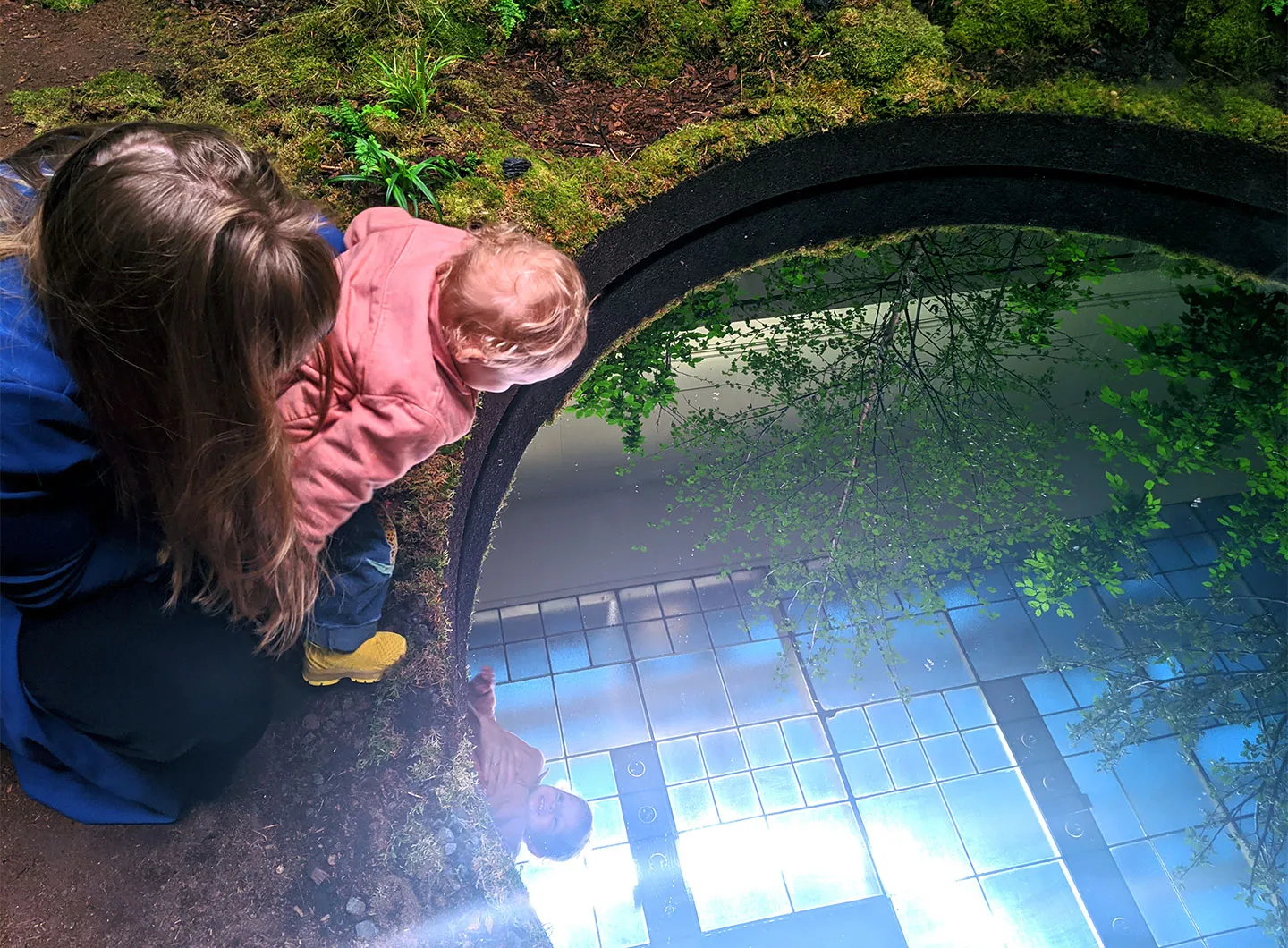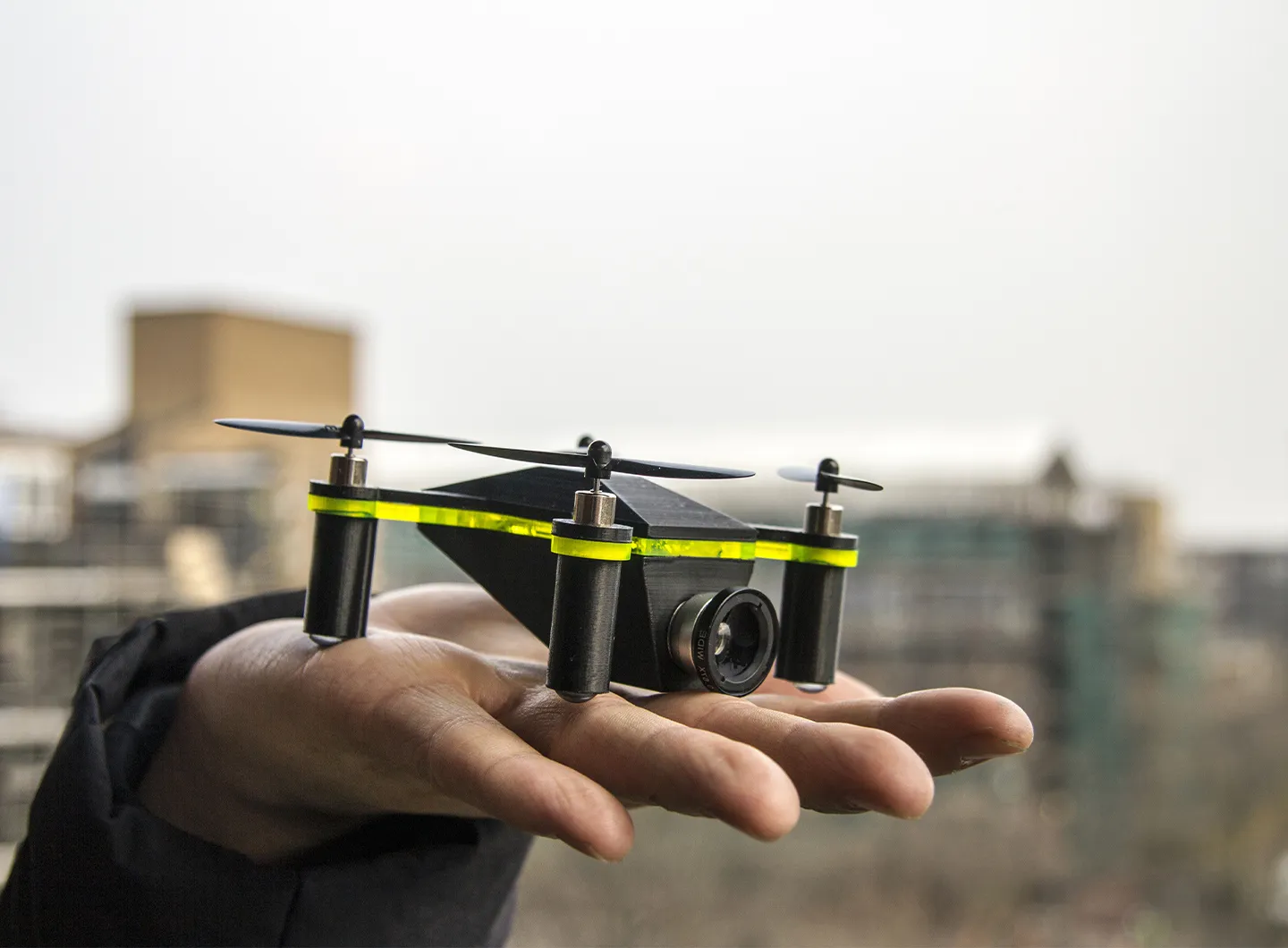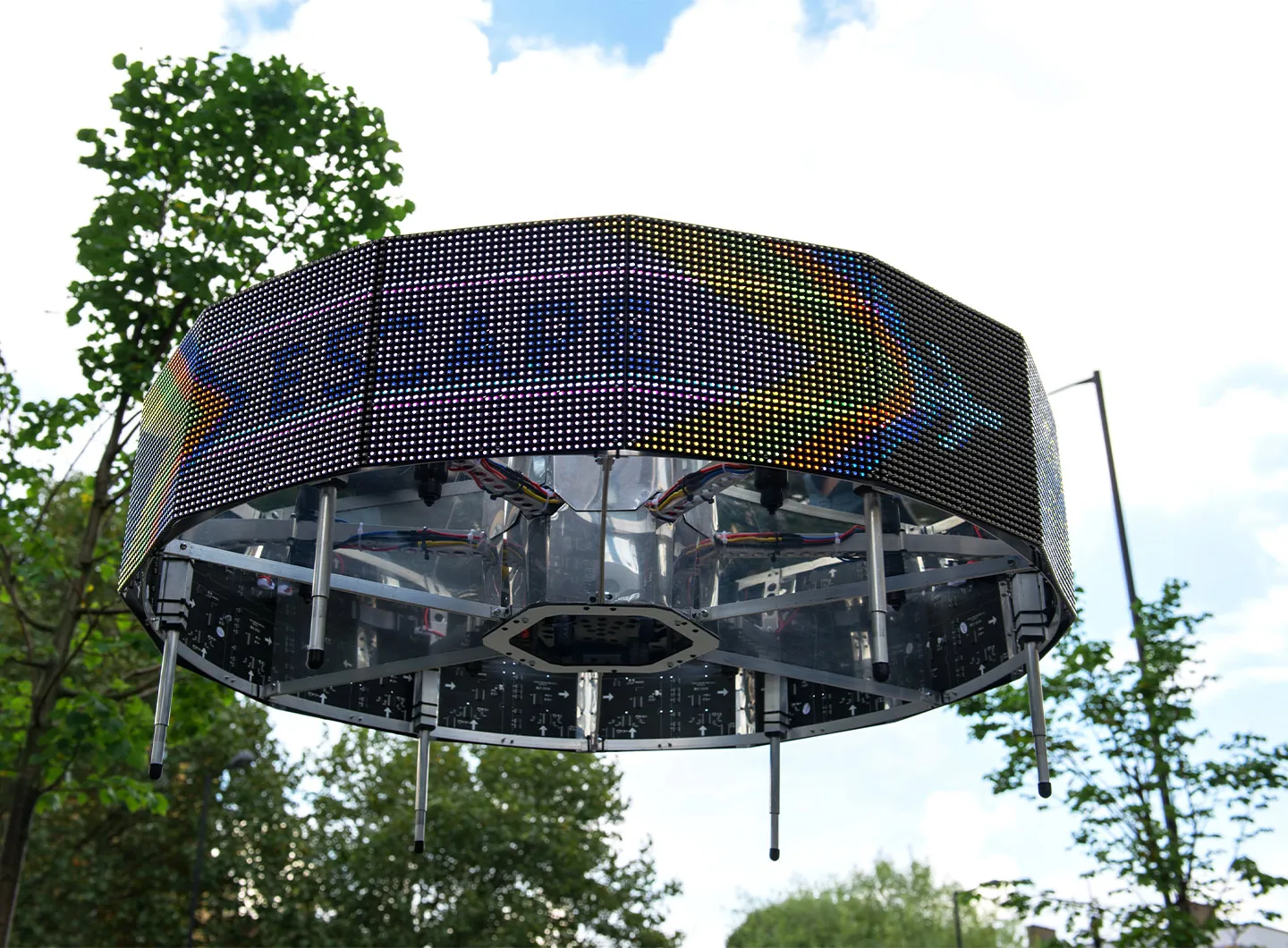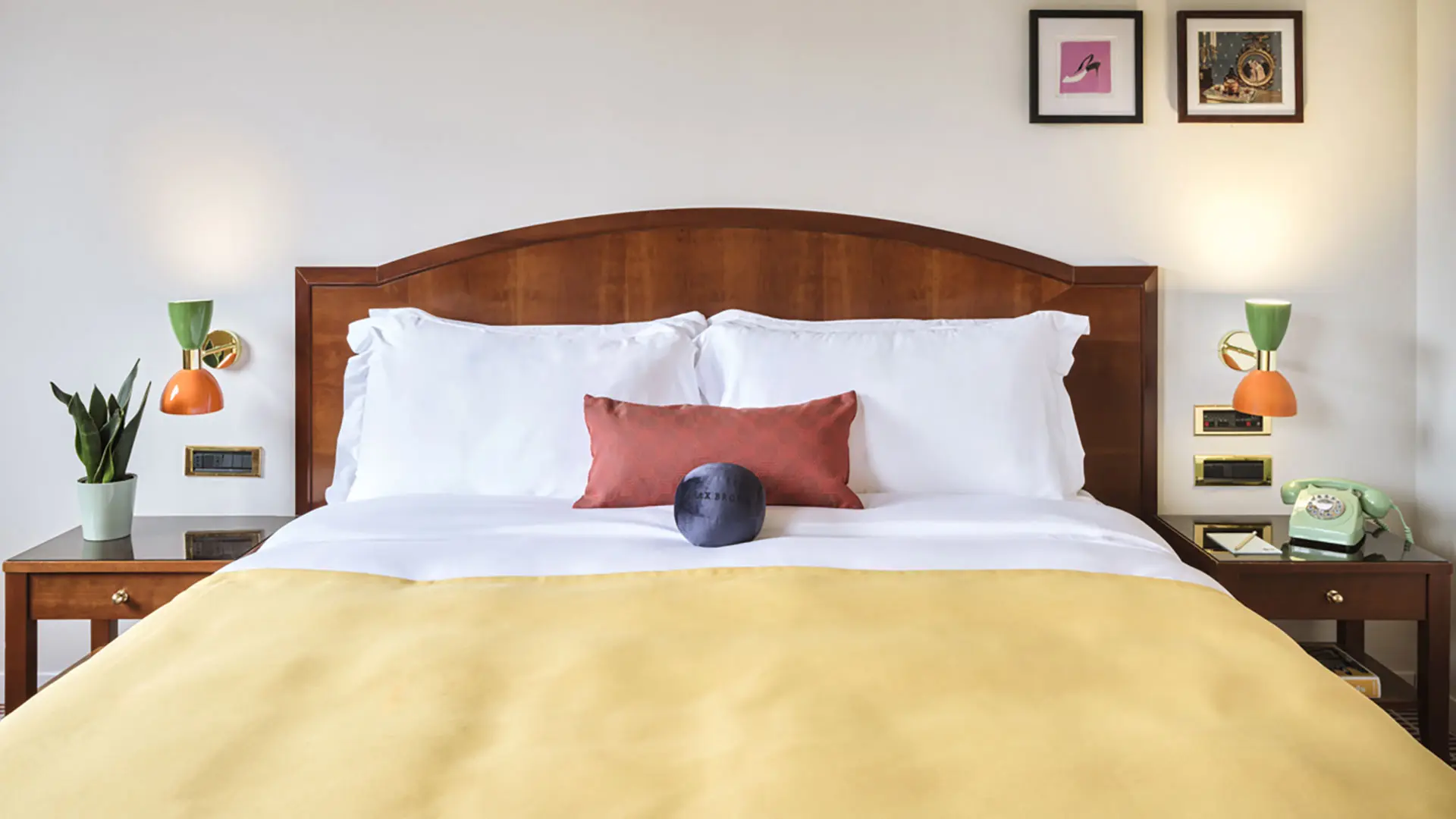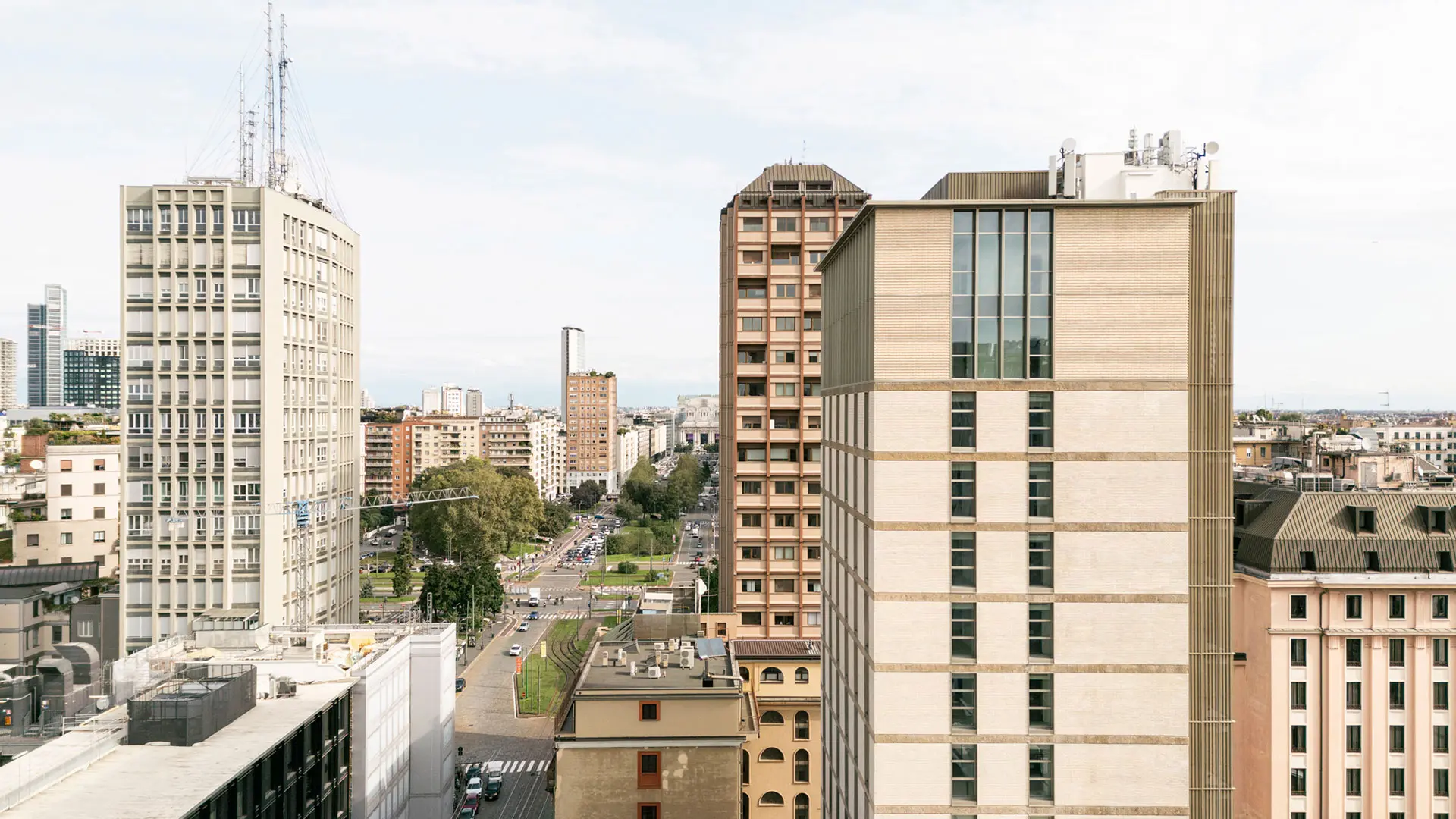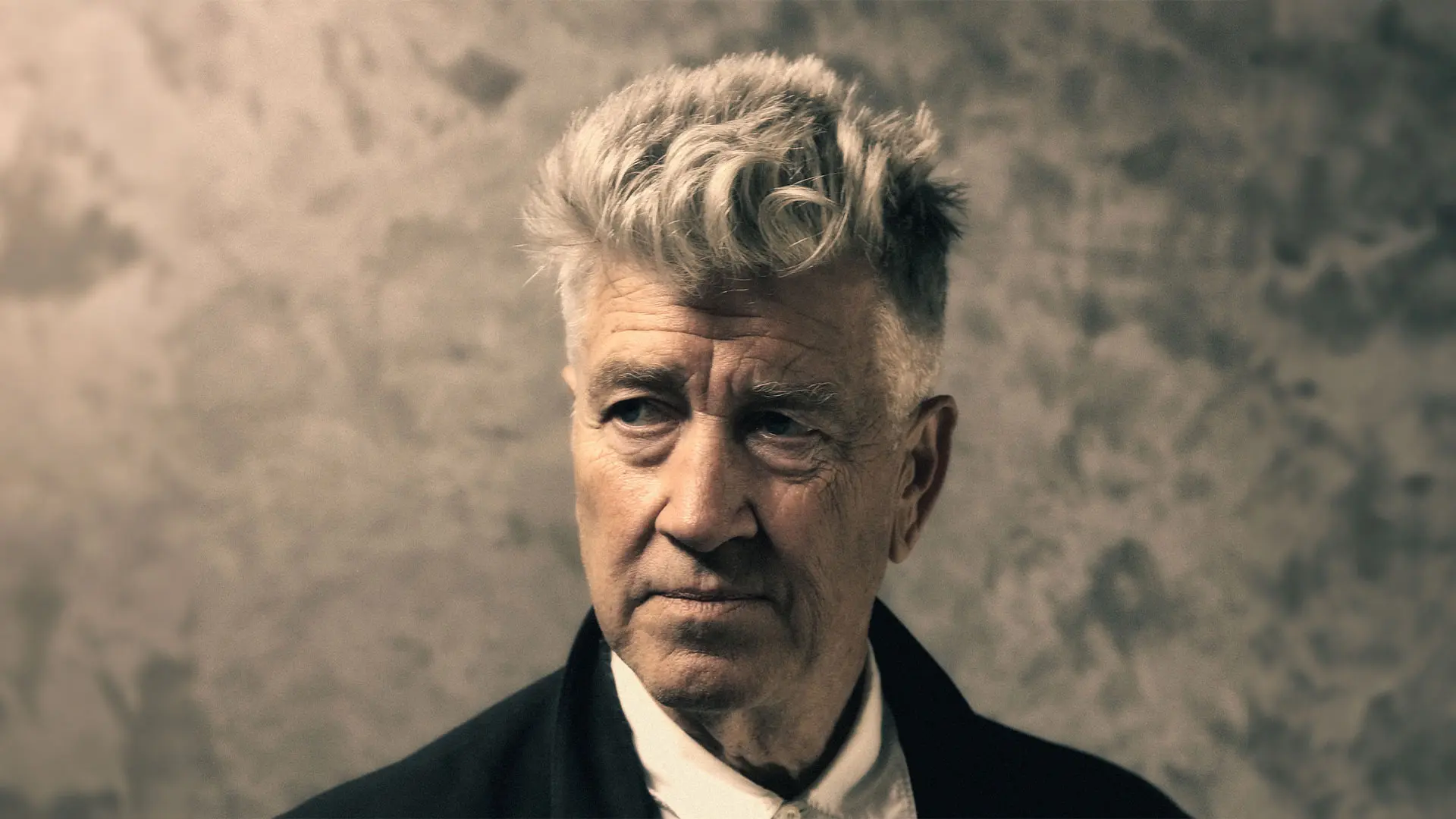In partnership with MiCodmc, a selection of establishments ripe for discovery during the 63rd edition of the Salone del Mobile.Milano, from 8th to 13th April
Design for a less uncertain future, in conversation with Anab Jain
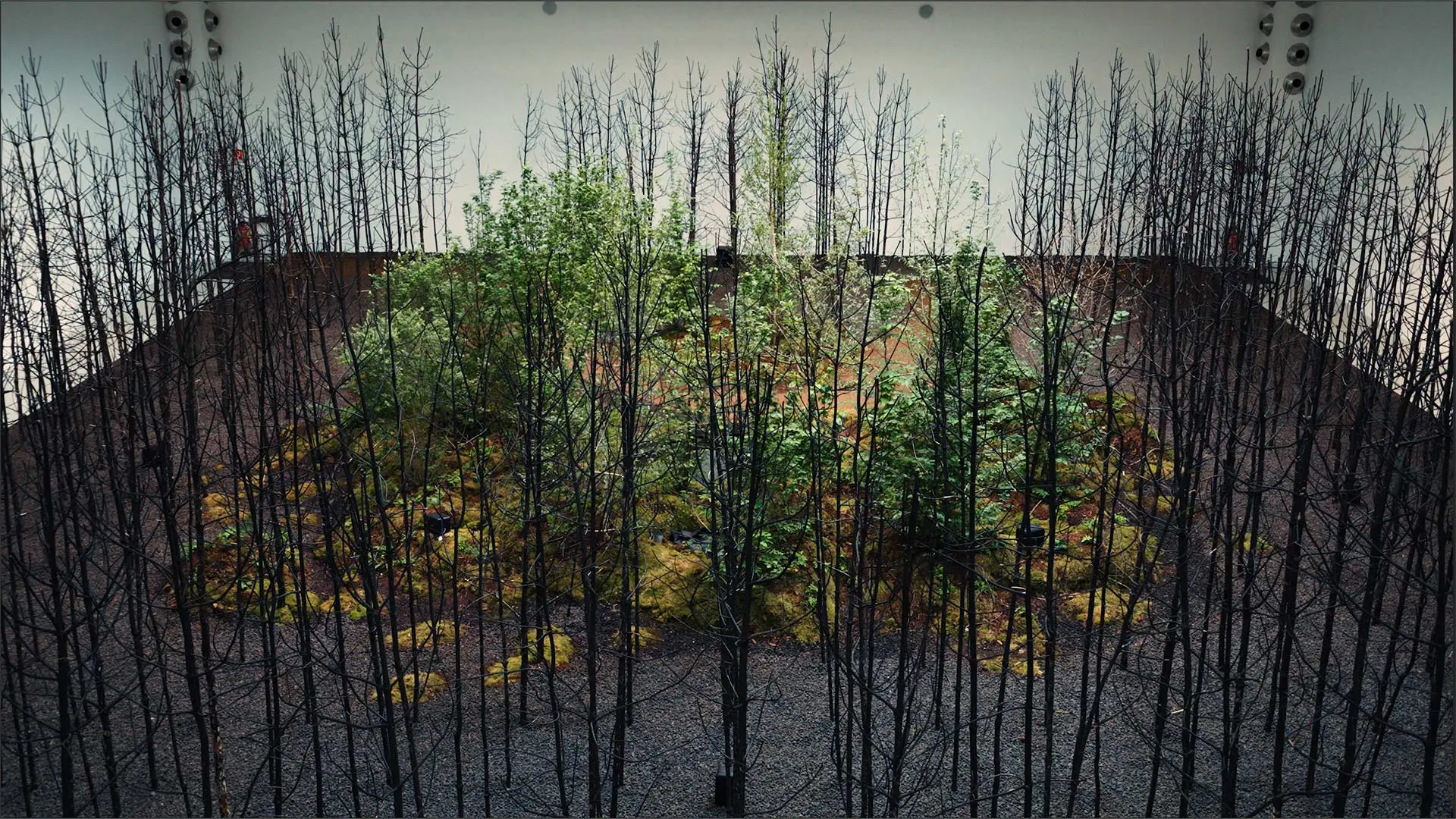
Invocation For Hope, Superflux, photo Stefan Lux
Anab Jain is a designer and co-founder of the Superflux studio. She took part as a speaker in one of the talks of the Salone del Mobile 2022, the moment for us to ask her some questions about the sense of design and the work of the studio
Anab Jain, hailing from western India and resident in London for years, is a designer, storyteller, director, futurist and speculative designer, co-founder in 2009 of Superflux. In June, she took part in the Radical Nature - the design and science of worldbuilding, which Beatrice Leanza held during the 60th edition of the Salone del Mobile in Milan.
Anab is the second moving spirit of Superflux, a transdisciplinary practice based in London that embraces the themes of technology, seeking to translate an uncertain future into a desirable present. A practice that deals with the future, and does so by conducting experiments that can influence today's choices, with the idea that the future is not a certainty, but an objective that changes continuously depending on the decisions taken today.
In addition to running the practice with Jon Arden, Anab is a lecturer at the University of Applied Arts in Vienna. She runs the course Design Investigations, in which she teaches students to ask the right questions: for Anab the meaning of doing design is about being able to formulate the right questions to ask yourself at the right time. If we take technology, for instance, it is not the ultimate goal but a tool for attaining a possible goal. With this idea in mind, Superflux designs products, installations, films and experiences as the vectors of a question that then remains with the viewer.
In tackling issues such as technological acceleration, political choices or climate change, Superflux tries to ask the right questions to stir debate and raise fundamental issues. To do this, in addition to the two founders Anab Jain and Jon Arden, the Superflux team involves multidisciplinary participation by ethnographers, researchers, architects, videomakers, sound designers and copywriters. In Superflux’s work the multidisciplinary approach becomes transdisciplinary, with the ability to fuse different skills to create visions and stories of a possible future that it then guides in the direction of a desirable future.
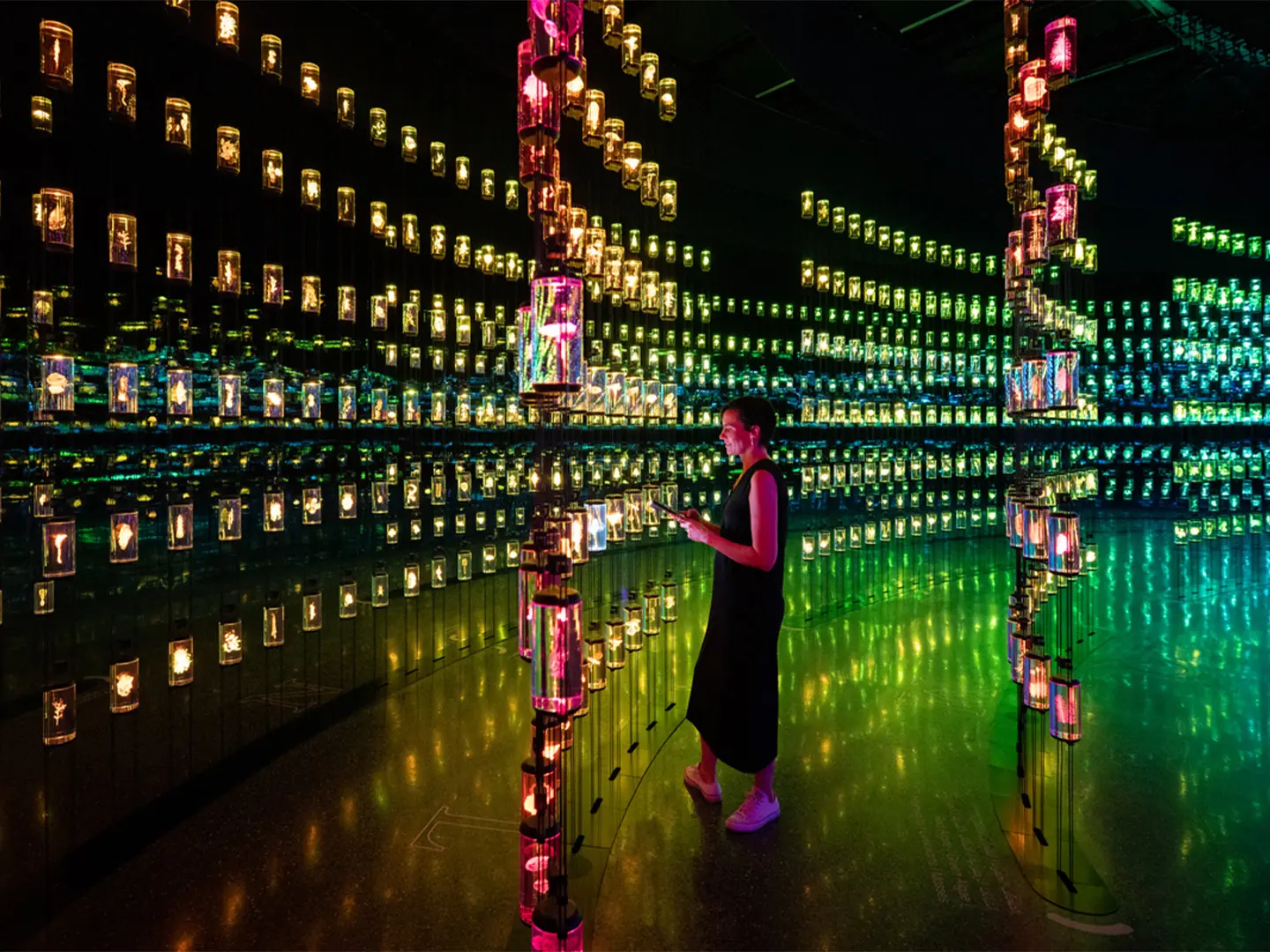
The Vault of Life, Superflux, photo Sandra Ciampone
Anab told us about Superflux through its projects and by thinking about design. First of all, we asked her to describe how Superflux works, how it approaches design and conducts its projects.
“At Superflux for the last 14 years we’ve been pioneering, exploring and investigating what design-led futures could look like and what sort of approaches can be taken. We’ve often been told that our work falls into the category of speculative design. We ourselves call it experiential futures or embodied experiences. It is also critical foresight work or critical design work.
Under all of these labels lies the actual approach, and I think that’s the most important thing. We have a very well refined method and approach for our work. The key idea here is that we really believe in an approach that is rigorous in its research but in parallel also requires thinking through making. We have a very multi-pronged approach through which we start our projects. Then, we spend a lot of time following material, ethnographic and anthropological research to explore the idea of world building and storytelling, to finally crafting artifacts that you might call speculative design, or fully immersive experiences that invite people to physically step into future worlds.”
Among Superflux's latest works “The Vault of Life”, for the Museum of the Future in Dubai, is a large collection of 2400 specimens preserved in crystal jars, presenting the near future of 2071, by when many living species will have suffered irreparable damage. The immersive installation catalogues the great diversity of living beings on our planet, and urges visitors to take action, entering into a relationship with it and understanding how to take care of it.
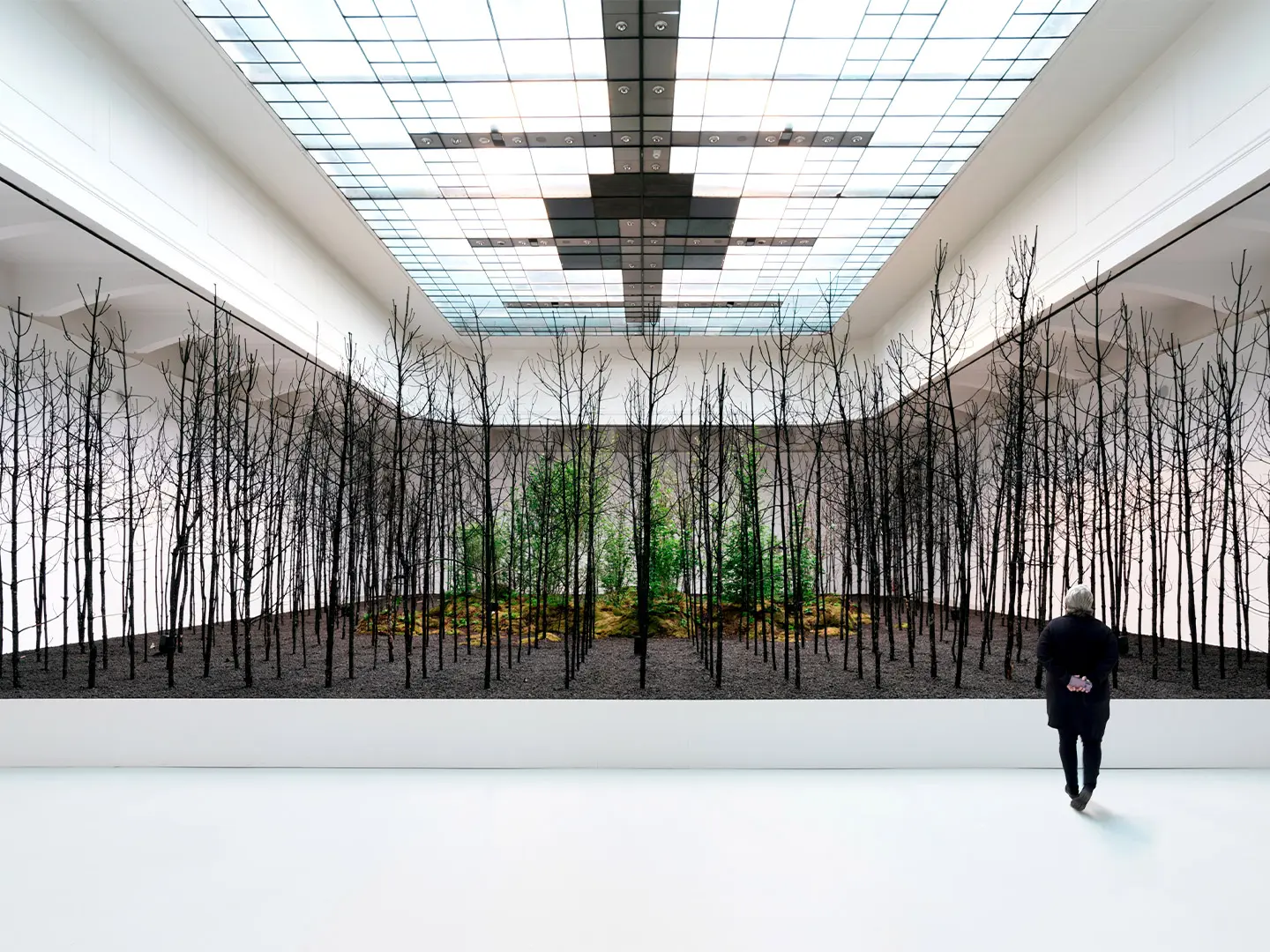
Invocation For Hope, Superflux, photo Gregor Hofbauer
The same thematic strand appears in the project “Invocation for Hope”, presented at the Biennale for Change in Vienna in 2021 and exhibited at the MAK in Vienna.
This is an immersive installation that accompanies visitors through a first stage of destruction represented by a series of burning pine trunks, but which at its core preserves a heart of rebirth. After passing through a first level of destruction, the visitors find themselves in a living forest, with real trees and patches of mosses and lichens. At the center of the forest is a circular pool from which some animals such as bison, otters and birds are digitally drinking, visualized by the visitor on the surface of the water.
The installation impels the viewers to reflect on a possible post-anthropocentric future in which humanity can be symbiotically part of a dynamic and multifaceted ecosystem. With its Renaissance center, the installation compels visitors to rethink their role on the planet, with humanity no longer as the master but only a part of the system itself.
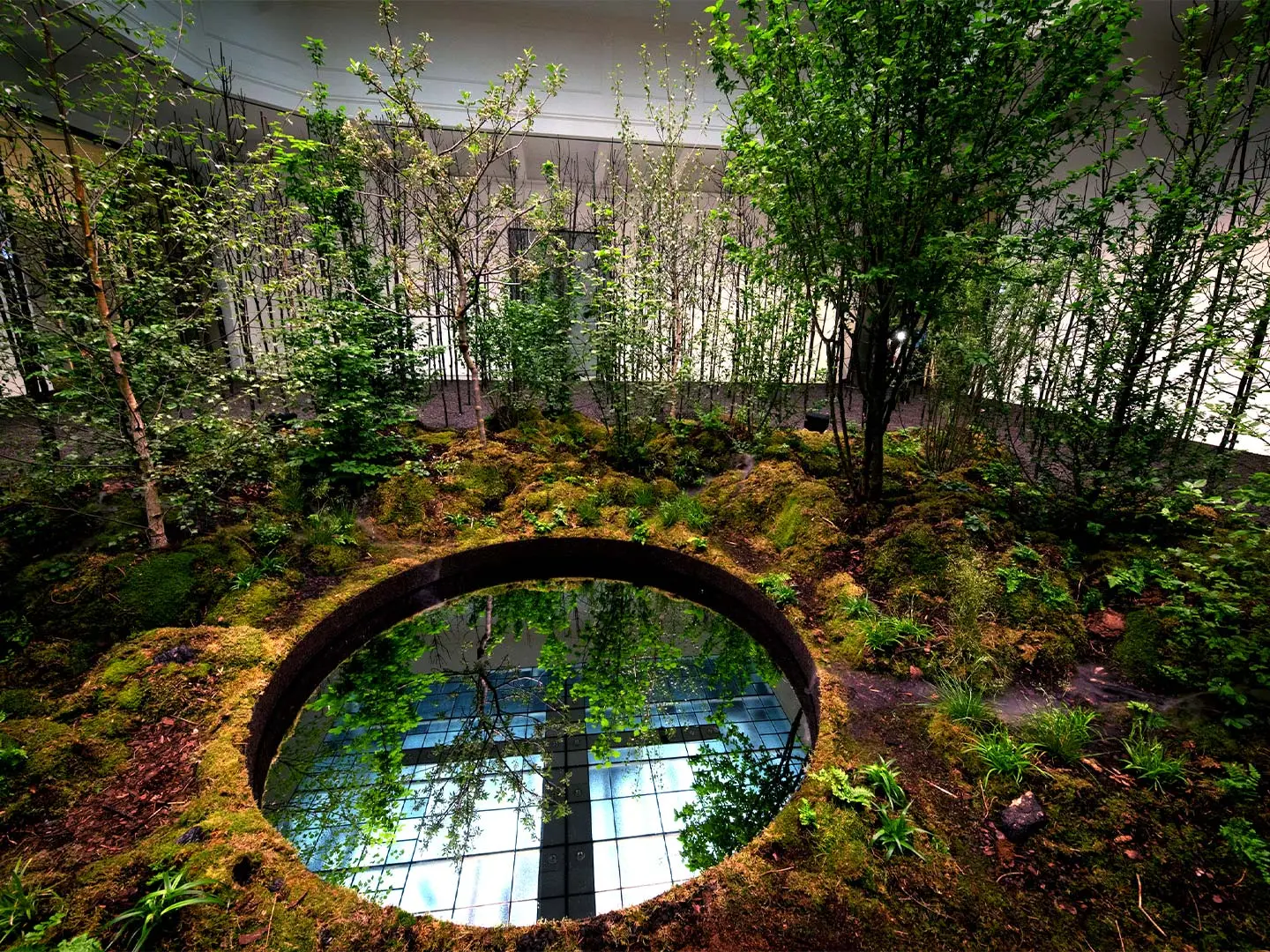
Invocation For Hope, Superflux, photo Stefan Lux
And if the topic of the climate crisis is of particular interest to Superflux, the same can be said of issues relating to technology. With “Drone Aviary”, using the media of video, installation and publications, the studio investigated a near future of cohabitation between intelligent drones and humans.
Presented at the V&A Museum in London in 2015, the project exhibited 5 drone models, accompanied by a video, which symbolically represented some of the trends and features of this technology. An advertising drone was then presented to stand for pervasive advertising, a journalist drone to represent the phenomenon of high-frequency journalism. Then again the surveillance drone, opening the theme on facial recognition and the right to privacy, the drone traffic director that can impose fines at its own discretion and finally the instadrone, which replaces the selfie stick.
The project prompts us to reflect on pervasive and controlling technologies that need regulation to be properly used.
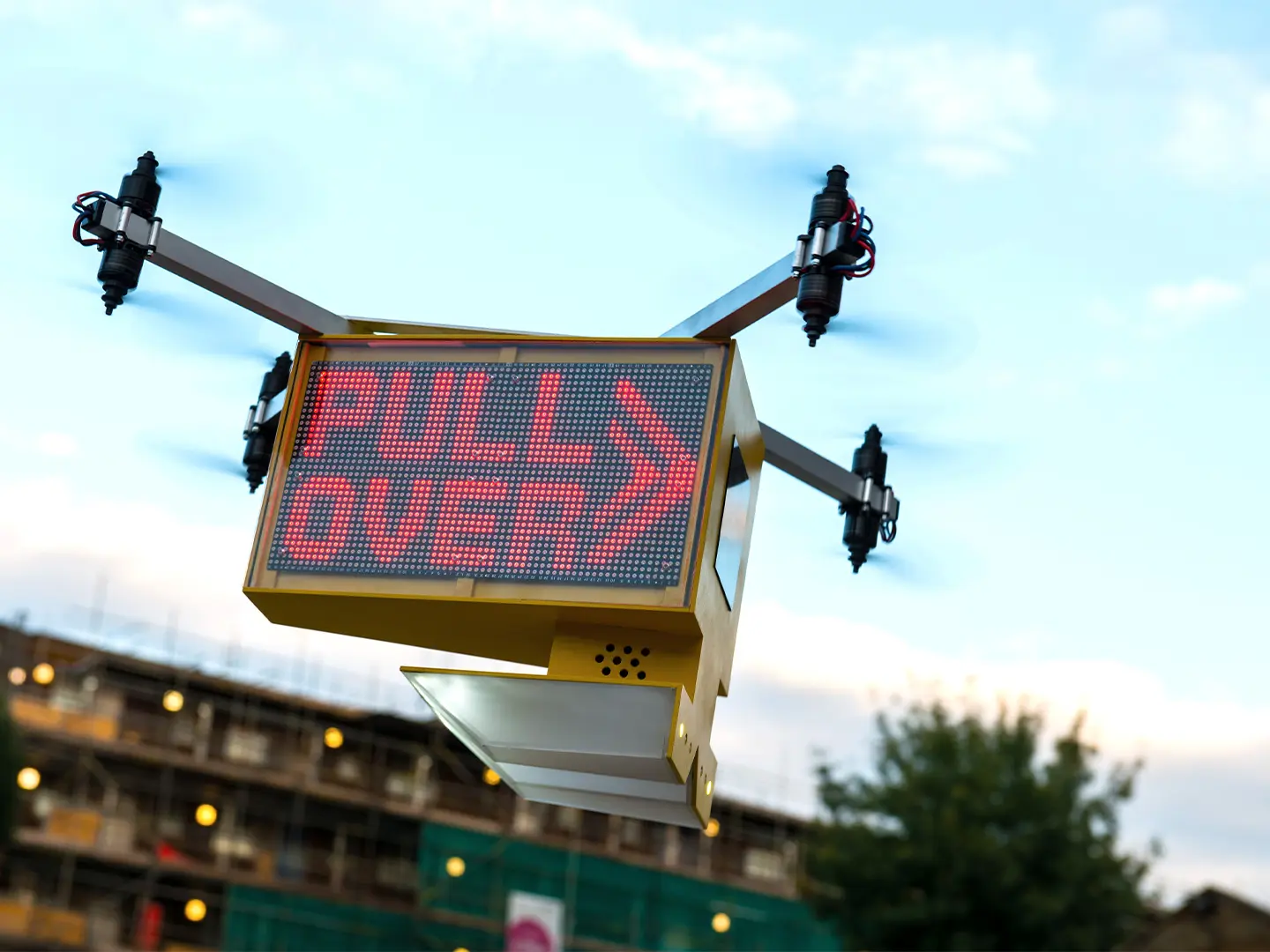
RouteHawk, Traffic Management Assistant courtesy of Superflux
And if Supeflux imagines futures, then we asked Anab to imagine the future of design as a discipline:
“I think this is a really good question, and it’s really time to re-imagine the design profession. In fact, later on today I’m going to be giving a talk for the Design Council’s Design for the Planet conference, in which I’m proposing one possible alternative for re-imagining design’s role for our future. I’m calling it ‘ancillary design’ but once the Design Council’s talk is out, maybe there’s a way to frame it better. It is an idea that this kind of design is meeting the universe halfway. It is a kind of design that nurtures an ecology of actions for positive long term change, gives voice to urgent protective practices that are often not acknowledged and provides scaffolding to collectively imagine many possible worlds.”
And what about the future of Superflux? Are there any upcoming projects you can tell us about?
“There are several ideas for projects and multiple conversations in the works. One project that we started research around, with support from King’s College London’s Culture Department, is a project we are calling Cascade Inquiry. Cascade Inquiry is an experiential research project where we are trying to create a generative space for collectively imagining and building futures where positive climate action has been taken.”


 Stories
Stories
